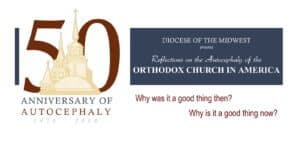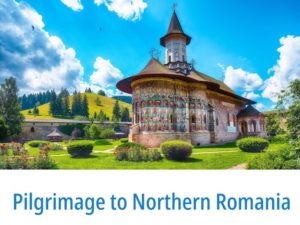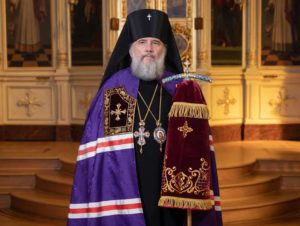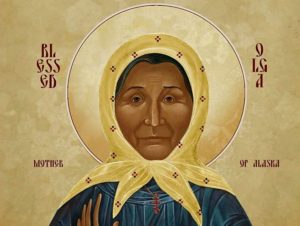PART IV
In the introduction to Orthodox America, Fr. Schmemann challenges us to identify with our culture, ‘with the people and with their real needs, spiritual as well as material.”
As we watch the news, explore the internet, and hear politicians support their platforms; as we experience the many challenges of our contemporary society, we might be tempted to disengage with society and our culture. Simply watching or reading the news can cause us to lose faith in humanity. We can be convinced that the human condition is worse today than ever before. We want to protect our children and ourselves from the darkness that exists in our world today. We can become fearful.
In spite of the bad qualities we might view around us and in America today, however, as Orthodox Christians—as authentic Christians in general–we have to acknowledge that good does exist—and realize that ‘goodness’ is plentiful in our country today.
Thus, we are called to resist the temptation to hide from the world, but be a good part of it—not just morally good, but good in the Christian sense. We should not be afraid or let fear overtake us We should not lose hope. As Christians, we are called to embrace those good qualities that exist (and they do), in order to use them—regardless from where they come– for the up-building and salvation of the faithful. We are called to focus on the healthy and vibrant aspects of our communities, parishes, and yes, our American culture, in order to welcome the opportunities they provide for the up-building of Christ’s church and His people.
In a sermon given on the parable of the talents, parish priest Father Daniel Hickman told his congregation that the servant who buried his talent did so out of fear. “…so I was afraid…” While pride is considered one of the greatest sins, Father Daniel said, he cautioned that it is actually fear that drives pride, thus, making it the greater sin.
Sister Vassa Larin also provides a reflection on this parable (www.coffeewithsistervassa.com) in which she implores us to consider that …”this choice casts them into the misery that comes hand-in-hand with a faithless, fear-filled life: 1. Self-isolated inactivity, or “hiding” God’s goodness, given to each of us, “in the ground,” rather than participating in the creative flow of His energies in this world, by “investing” them with others; 2. Spiritual blindness or “the outer darkness,” which fails to perceive God’s goodness, both in Him and in us, as given to each of us in different ways, according to our different vocations…”
As we celebrate the joyous milestone related to our autocephaly, we can take time to ponder the topic of fear and how it is related to Fr. Schmemann’s charge to identify with the ‘real needs’ of our people. What have we done in the past fifty years to identify with the ‘real needs’ of our people?
In the ever-growing diversity of our country, we should consider whether fear has held us back in bringing the one true faith to our unique culture. Have we embraced the opportunities our country has provided for the up-building of our people—both within the faith and outside our doors? Have we acknowledged that we can hold onto the truths of our faith while at the same time embrace the unique and good aspects of our culture? What’s more, are we using the gifts and talents of all of our people to serve the ‘real needs’ of our faithful and our culture?
What’s more, does that same fear compel us to cling to practices and customs only because they ‘feel right,’ or were carried over from the ‘old country,’ or from an era and culture that is not relevant to us today? Does fear encourage us to overlook some of Christ’s most radical yet astounding teachings and actions in His own culture in which slavery was a norm and women were second class citizens?
As diverse as our country may be, is it really that much different than those countries in which the early Church developed, or even during the great Byzantine era? Did those societies not have crime, sexual immorality, violence, drug abuse, among other social ills?
With the 50th anniversary of our autocephaly as a backdrop, we can joyfully celebrate that which can result when we overcome fear. There is no need to fear our neighbors, our children’s schools, or our workplaces. We do not need to let fear stifle our potential to grow boldly in our faith, while helping others to do so as well. Fr. Schmemann did not let fear prevent him from introducing the practice of general confession, but was convinced of the power that existed when we partake of the Holy Eucharist more frequently. In my parish in Columbus, Ohio, during the 1980’s, Bishop Boris of eternal memory gave his blessing to our priest to hold Vesperal Liturgies on major feasts. In a culture in which the norm is for our children to be in school and adults are at work during the day, the introduction of the Vesperal Liturgy allowed us to fully celebrate the major feast with a Eucharistic service. Bishop Boris was not afraid to acknowledge the culture in which we live and make adjustments (without altering our theology) so that we could fully participate in our Orthodox faith. I am convinced that these practices were life-changing to my family and others.
What’s more, we should not let fear prevent us from welcoming the talents, gifts, wisdom, experiences, and perspectives of all of our people. We do not need to hide behind practices, customs, and traditions that ‘feel right’ or are ‘centuries old’ when they may actually misrepresent and even damage our beautiful theology. The pearl found in living in America today is the opportunity to fully live out our authentic faith, embrace the Good News, and help each other as we journey towards salvation.
The love I have for my faith affords me opportunities to share my gifts, talents, and perspectives with the Church in a way that would not have happened without autocephaly and the culture in which we live. I am grateful to my parish priest, Father Daniel Rentel, who appointed me Parish Council Vice-Chair, a position I held for nearly twenty years. That initial role, and my passion for writing, then allowed me, under the leadership of Father Ted Bobosh, to write a religious education manual that is still well-used thirty years later. I went on to serve on various task forces, a Pre-Conciliar Commission, Diocesan Council for the Midwest Diocese on two separate occasions, and the OCA Pension Board. As I came close to retirement age, I felt called to do something more with the gifts and talents I had been given—to leave a legacy of sorts. That desire led to my founding a non-profit that supports the revival of the female diaconate in the Orthodox Church.
Today, more than ever, America provides unique opportunities for us as Orthodox Christians to learn, question, dialogue, and use our gifts and talents for the up-building of our society, its people, and the entire body of Christ. We must not be afraid to use that which is good in our culture for the glory of God.
This milestone offers each of us the opportunity to consider what we have done with the ‘talent’ given to us. Have we invested it wisely or buried it? Are we using the gifts, abilities, perspectives, and experiences of all of our faithful to minister to each other so that we all might find healing, hope, and joy?
Christ came at the fullness of time to spread the Good News to the world. Perhaps our autocephaly came at a certain ‘fullness of time’ as well. Let us celebrate this milestone; let us nurture it; let us be fully aware of the potential autocephaly has provided and its rich potential as we move forward in the next fifty years. Let us rejoice in the Risen Christ and look to the radical encounters He had with both men and women; let us be guided by those examples so that all of His people might rejoice in spiritual well-being and Christ’s salvation. Amen!




